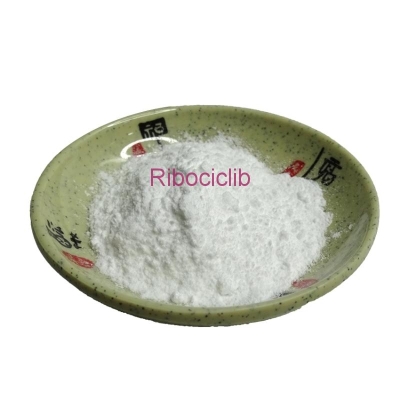-
Categories
-
Pharmaceutical Intermediates
-
Active Pharmaceutical Ingredients
-
Food Additives
- Industrial Coatings
- Agrochemicals
- Dyes and Pigments
- Surfactant
- Flavors and Fragrances
- Chemical Reagents
- Catalyst and Auxiliary
- Natural Products
- Inorganic Chemistry
-
Organic Chemistry
-
Biochemical Engineering
- Analytical Chemistry
- Cosmetic Ingredient
-
Pharmaceutical Intermediates
Promotion
ECHEMI Mall
Wholesale
Weekly Price
Exhibition
News
-
Trade Service
Guide
Active surveillance (AS) is currently the standard management strategy for patients with low- and intermediate-risk prostate cancer (PCa) and typically includes prostate-specific antigen (PSA) testing, clinical examination, and repeat prostate biopsy
.
Some findings suggest that patients who have a negative result at the time of initial biopsy have a much lower risk of subsequent disease progression than those
with a positive result.
In order to verify this result and evaluate whether the existing follow-up intensity of AS is suitable for PCa patients with a negative initial biopsy result, multinational researchers conducted this study, and the results were published recently
.
Current AS follow-up protocols for patients with PCa are essentially the same, regardless of the results of their initial biopsy
.
To verify whether patients with PCa with a negative initial biopsy could reduce follow-up intensity and unnecessary invasive prostate biopsies, the investigators analyzed the risk
of disease progression in two groups (positive and negative initial biopsy) in this study.
The study included data
from 13,161 male patients from the GAP3 Consortium, a global active surveillance database of 24 centers.
Patients with a graded classification system (GG) of prostate cancer at baseline ≤ grade 2, PSA≤20 ng/mL, cT1-2, diagnosed after 1995, and ≥ number of repeat
biopsies at time.
Risk of disease progression is defined as the risk of switching to aggressive therapy (both curative and noncurative), the risk of an elevated GG risk class on subsequent biopsy, the risk of increasing GG grade > 2 (i.
e.
, severe escalation) on subsequent biopsy, and the risk of progression of PCa volume (percentage of needles positive > 33%)
.
Of the 13,161 patients with PCa, 27% (n=3590) had a negative
initial biopsy.
After 5 years of follow-up, 26.
2% and 41.
2% of the biopsy-positive and negative groups were still in AS status, respectively, while 38.
7% and 22.
2%
were converted to active treatment, respectively.
Fig.
1 Risk comparison between the two groups from AS regimen to active treatment
In the biopsy-negative group, more than 50% of patients also had negative results for subsequent periodic repeat biopsies (up to 8 times), and 41% consistently showed negative results
in ≥ 3 periodic repeat biopsies.
The rate of any elevated GG grade, including severe escalation, on subsequent biopsies was also low
in the negative biopsy group.
Fig.
2 Comparison of the proportion of increased GG grading between the two groups
Multivariate analysis showed a significantly lower risk of switching to aggressive treatment in the biopsy-negative group compared with the initial biopsy-positive result group (HR: 0.
45, 95% CI 0.
42 to 0.
49), and a lower
risk of increased GG risk grade (OR: 0.
52, 95% CI 0.
45 to 0.
62) and severe escalation (OR: 0.
74, 95% CI 0.
59-92) at subsequent biopsies.
Fig.
3 Correlation between initial biopsy results and subsequent risk of disease progression
Despite certain limitations, such as many confounding factors and failure to evaluate imaging progress, the results of this global study can still provide insights
for the adjustment and improvement of AS regimens.
Overall, patients with a negative biopsy are at lower risk of disease progression than those with a positive initial biopsy, and consideration should be given to reducing the intensity of follow-up in these patients to reduce unnecessary invasive prostate biopsies
.
References:
Beckmann K, Santaolalla A, Sugimoto M, et al.
Risk of progression following a negative biopsy in prostate cancer active surveillance.
Prostate Cancer Prostatic Dis.
2022 Aug 25.
Editor: Mumu Wang
Review: LR
Execution: Wang Mumu
This platform aims to deliver more medical information
to healthcare professionals.
The content published on this platform cannot replace professional medical guidance in any way, nor should it be regarded as diagnosis and treatment advice
.
If such information is used for purposes other than understanding medical information, this platform does not assume relevant responsibilities
.
The content published by this platform does not mean that it agrees with its description and views
.
If copyright issues are involved, please contact us and we will deal with it
as soon as possible.







